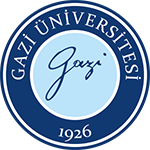ABSTRACT
Purpose:
The method used most commonly to analyze oxidative modification of the proteins playing a role in the etiopathogenesis of various diseases is the determination of carbonyl groups, which are the oxidative modification products. To demonstrate the effect of radiation on serum, we determined carbonyl group levels that are protein oxidation products and iron (Fe) and copper (Cu) levels, which are known to increase the protein oxidation, using metal-catalyzed oxidation (MCO) systems.
Materials and Methods:
After exposure to radiation and antioxidant (NAC), guinea pigs’ serum Fe, Cu and protein oxidation levels were analyzed. Protein oxidation was determined by the Levine method, Fe levels were measured using an autoanalyzer and Cu levels were determined using an atomic absorption apparatus.
Results:
Radiation was found to significantly increase the serum carbonyl groups, and Fe and Cu levels. Oxidative stress was observed to decrease in the group given NAC before radiation compared to the group receiving radiation only. Giving only NAC to the guinea pigs led to decreases in parameters.
Conclusion:
Radiation causes oxidative modification of the proteins by an increase in the levels of reactive oxygen radicals and Fe and Cu levels by creating metal catalysis, and NAC has a protective effect against oxidation due to radiation.



